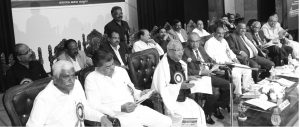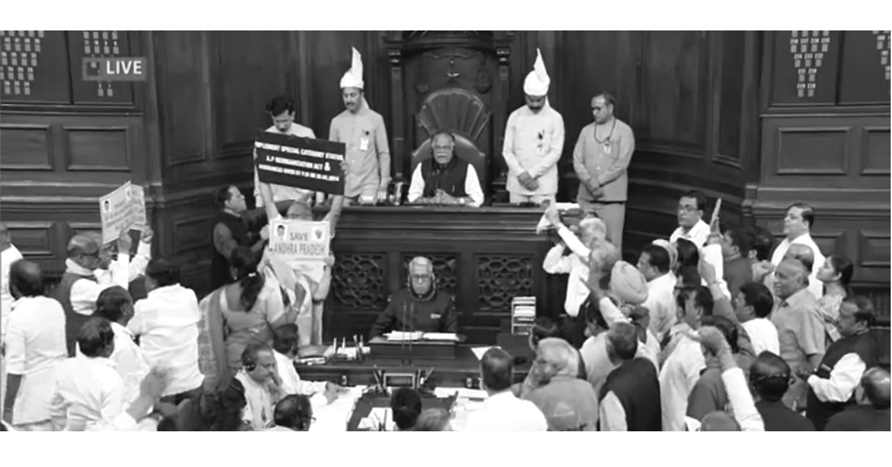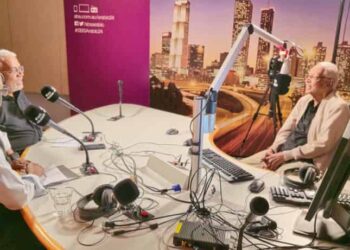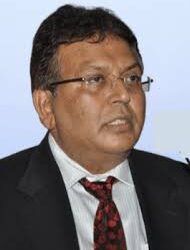– Dr. K. Veeramani
Recently, Constitution (124th Amendment) Bill providing for 10 per cent reservation to the forward communities on economic basis was rushed through in two days in both the houses of the Parliament and passed. No reference to Select Committee of the Parliament was made.
The younger generation, who are not aware of the circumstances that led to the implementation of the reservation system and the factors which prompted it, are unable to understand the reasons for our opposition to Economic criteria.
It is essential that such doubts have to be clarified.
Why was community – wise reservation implemented in our country?
It is because only in our country there exists a social system of caste based on birth, codified as varnasrama, practising inhuman and humiliating practices of untouchability, unseeability and unapproachability.
Manu Dharma which sanctifies caste system observes in its 87th verse of Chapter I that Brahma created from his face, shoulders, thigh, and feet respectively the castes of Brahmana, Kshatriya, Vaisya and Sudra and divided their respective duties which would be beneficial to them in this birth and the hereafter.
According to this arrangement only Brahmins, the upper most caste-Varna, with graded inequality got monopoly of education (which was learning Vedas in those days). Even if others attempted to learn the Vedas their tongue must be cut off, if they listen of the recitation of the Vedas, molten lead must be poured into their ears, injuncts Manudharma.
When the Indian Constitution came into force in 1950, a Brahmin candidate, Chempakam Durairajan approached the Madras High Court against the Communal G.O. of Madras State which had been in force since 1928, arguing that it was against the principle of equality enshrined in the Constitution and ultra vires to it. The High Court of Madras and the Supreme Court accepted the argument and decreed the Communal G.O. as unconstitutional.
As a result Thanthai Periyar launched a massive agitation in Tamil Nadu (the then Madras State) with the massive support of people of all the walks of life. So, the then Prime Minister Jawaharlal Nehru in consultation with the then Law Minister B.R. Ambedkar brought an Amendment to the Constitution paving the way for the reservation for the ‘Socially and Educationally’ Backward classes by inserting Article 15 (4).
First Amendment to Indian Constitution
While inserting Article 15(4) through the first amendment of Indian Constitution in 1951, they very aptly chose the words, ‘socially and educationally.’
At the time of the First Amendment, when some members on the floor argued for the inclusion of the word ‘economically’, Prime Minister Jawaharlal Nehru stated that economic yardstick used to get changed every year; it is not a definite measure and it would lead to confusion. When the inclusion of economic criterion was subjected to voting, it secured only 5 votes and 243 members voted against it. The criteria of ‘socially and educationally’ as available in Article 340 were used in the inserted Article 15(4) of the Constitution which says,
“Nothing in this article or in clause (2) of Article 29 shall prevent the State from making any special provision for the advancement of any socially and educationally backward classes of citizens or for the Scheduled Castes and the Scheduled Tribes.”
‘Reservation is not poverty alleviation scheme’
Justice O. Chinnappa Reddy of Supreme Court had observed in one of the cases that ‘Reservation is not a poverty alleviation scheme’. Reservation is the mode of compensatory measure to uplift the weaker sections of people who were denied education and employment for many centuries and not a poverty alleviation scheme for carrying out which there are many other modes. Resorting to reservation mode for poverty alleviation is unconstitutional. Reservation is meant to set right the injustice done to the ‘socially handicapped and disadvantageous’ sections of the society from the time immemorial.
Those who are afflicted of hunger must be given priority in the dining table; not those who are suffering from indigestion due to over eating. There can be equality only among the equals and not among unequals.
We are not against the poverty alleviation schemes introduced by the government. For that reservation is not a panacea. The Supreme Court has pointed out time and again that reservation is not a poverty alleviation programme.
When the present Central government goes by economic criterion, why should it be confined to the poor in the upper class communities only? Are there no poor people in all the communities? Economic criterion is volatile and ever changing, whereas social and educational backwardness are permanent and stable. Once a person is born in a caste he continues to live in the caste and die in the caste and in the graveyard also there is discrimination.
The intention of this hasty step is basically to put an end to the reservation system for the backward and the depressed classes. This is the first step in that direction.
Article 46 of the Constitution says,
Promotion to Educational and Economic interests of the Scheduled Castes, Scheduled Tribes and Other Weaker Sections. The State shall promote with special care the educational and economic interests of the weaker sections of the people, and in particular, of the Scheduled Castes and the Scheduled Tribes, and shall protect them from social injustice and all forms of exploitation.

Dr. K.Veeramani addressed at the Seminar on ‘The Constitution (103rd Amendment) Act 2019 and its Consequences’, organised by the Karnataka State Commission for Backward Classes at Bangalore on 28th January 2019. Besides are Respectful C. Pandrenge Shetty, Hon’ble Minister for Backward Classes, Government of Karnataka, Justice K.L. Manjunath, former Judge of Karnataka High Court, Prof. Ravivarma Kumar, former Advocate General, Government of Karnataka, Mr. B.K. Hariprasad, Member of Parliament, Mr. Revanna, former Minister, Government of Karnataka and Mr. H. Kantharaja, Chairman, KSCBC, Mr. Lakshmi Narayan, former M.L.C.
To claim that the present arrangement for reservation in educational and employment opportunities for the economically weaker sections (EWSs) is undertaken as per the provisions of Article 46 of the Indian Constitution is clear distortion and misinterpretation of the section.
Article 46 was added to the Constitution for rescuing from the centuries old injustice and exploitation the Scheduled Castes, the Scheduled Tribes and other weaker sections of the society and to enable them to improve themselves in education and economic status.
This is a dangerous beginning –just like the camel’s intruding into the tent. Following the recent debacle in the election held in five States, RSS has sent a confidential note to the Centre explaining that the defeat was a result of the bitterness of the upper class people, which can be removed only by diluting the reservation policy in respect of the backward and the depressed classes. The amendment is a political strategy for recapturing the lost vote bank.
The economically weaker sections have been identified as a person the gross annual income of whose family is below Rs. 8.00 lakhs as per the Office Memorandum dated 19th January 2019. Besides, the following persons whose family owns or possesses any of the following be excluded from being identified as EWSs, irrespective of the family income
i) 5 acres of agricultural land and above
ii) Residential flat of 100 sq. ft. and above
iii) Residential plot of 100 sq. yards and above in notified municipalities.
iv) Residential plot of 200 sq. yards and above in areas other than the notified municipalities.
The above additionally mentioned categories of exclusion based on the ownership/possession of assets itself is entirely different from the category of the family of annual income of not exceeding Rs. 8 lakhs. What is the rationale of the ownership/possession of the assets without any or insufficient income generation from it. Even in respect of 5 acres of agricultural land holding what is the guarantee that it would generate income? Again the income generation depends on the nature of the farming – irrigated, unirrigated.
The very basis of economic criterion is unconstitutional and unethical for reservation which is meant for disadvantaged castes. Even within the various measures prescribed to identify the EWSs, the scope of income generation is not uniform. How far the economic criterion which is unconstitutional will stand judicial scrutiny?
With the annual income ceiling of Rs.8,00,000/- per annum, can those who get a monthly salary of Rs.68,000/- (daily wage of about Rs.2200/-) be considered poor people? Are those who own five acres of land poor? Can this be a permanent yardstick? Will this not change year to year? Economic status is volatile and ever changed.
Can reservation be changing from year to year?
The Preamble of our Constitution clearly states, Justice-Social Economic and Political, which implies these three are separate in our country. The necessity for justice arises from the prevailing injustice.
Social injustice is permanent till today
Economic injustice is not permanent but ever changing and
Political Justice is achieved through one vote for every citizen without discrimination.
“Testimony to Social injustice does not belong to purely intellectual exercise or legal quibble.”
Already in the Mandal Case, (Indira Sawhney Vs Union of India) the nine Judge Bench of the Hon’ble Supreme Court has decreed that the economic criterion is against the provisions of the Constitution as follows.
EWS-10% affects the existing Reserved Category
While narrating the implication of the 10 per cent reservation for the economically weaker sections, the ruling RSS-BJP combine says that the present quota would not deprive the OBSs, SCs and STs the chances of competing in education and employment.
This is the statement uttered ‘without understanding’ (to say exactly, ‘with full understanding’) to weaken the policy of caste oriented reservation. The ceiling on the total reservation at present amounts to 49.5 per cent leaving the balance of 51.5 per cent to open competition. It means that the OBCs, SCs and STs can also compete for the opportunities available in the open competition. The scope of competing by the existing reserved categories has been curtailed to only 41.5 per cent after the implementation of the reservation of 10 per cent for the economically weaker sections, who are predominantly upper castes with the further predominance of ‘brahmins’, whose monopoly in education and employment were almost full from the British ruled India and independent India even at latest.
QUOTE:
“Question No. 11: Whether the reservation of 10% of the posts in favour of ‘other economically backward sections of the people who are not covered by any of the existing schemes of the reservations’ made by the Office Memorandum dated 25.9.1991 permissible under Article 16? 867. This clause provides for a 10% reservation (in appointments/posts) in favour of economically backward sections among the open competition (non-reserved) category. Though the criteria is not yet evolved by the Government of India, it is obvious that the basis is either the income of a person and/or the extent of property held by him. The impugned Memorandum does not say whether this classification is made under clause (4) or clause (1) of Article 16. Evidently, this classification among a category outside clause (4) of Article 16 is not and cannot be related to clause (4) of Article 16. If at all, it is relatable to clause (1). Even so, we find it difficult to sustain. Reservation of 10% of the vacancies among open competition candidates on the basis of income/property-holding means exclusion of those above the demarcating line from those 10% seats. The question is whether this is constitutionally permissible? We think not. It may not be permissible to debar a citizen from being considered for appointment to an office under the State solely on the basis of his income or property-holding. Since the employment under the State is really conceived to serve the people (that it may also be a source of livelihood is secondary) no such bar can be created. Any such bar would be inconsistent with the guarantee of equal opportunity held out by clause (1) of Article 16. On this ground alone, the said clause in the Office Memorandum dated 25.5.1991 fails and is accordingly declared as such.”
– UNQUOTE
The present move of the Central Government bringing reservation based on economic criterion is unconstitutional causing social injustice and being against the interests of the oppressed classes.
The Centre has started to allocate a share of reservation for the upper caste Brahmins, whose population constitutes 12 per cent in Uttar Pradesh and a few other northern states and of states densely populated with the communities of Jats and Patels. This is the tactical move of BJP to garner the votes of upper castes, under the premise that their opposition to BJP will subside.
Conspiracy to blast the ‘Basic Structure of the Constitution’
The Centre has cleverly introduced the Bill of providing reservation in education and employment for the upper castes on economic criteria (‘poor’ among the upper castes) at the Lok Sabha on the final day of the winter session of the Parliament and on the next day at Rajya Sabha, extending the session by one day exclusively to accommodate the Bill without detailed deliberations.
Reservation in Employment under Article 16(4) is meant for the Backward Classes, not adequately Represented
Reservation is meant for the Backward Classes including the Scheduled Castes and the Scheduled Tribes who have been put historically in the lower rungs of social hierarchy. Because of their positions in the society they were denied education and employment of their choice as per the so called ‘divine dictum’.







